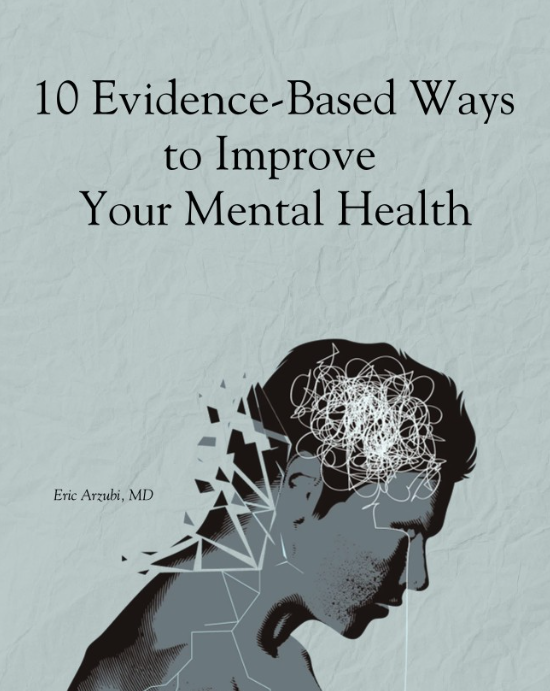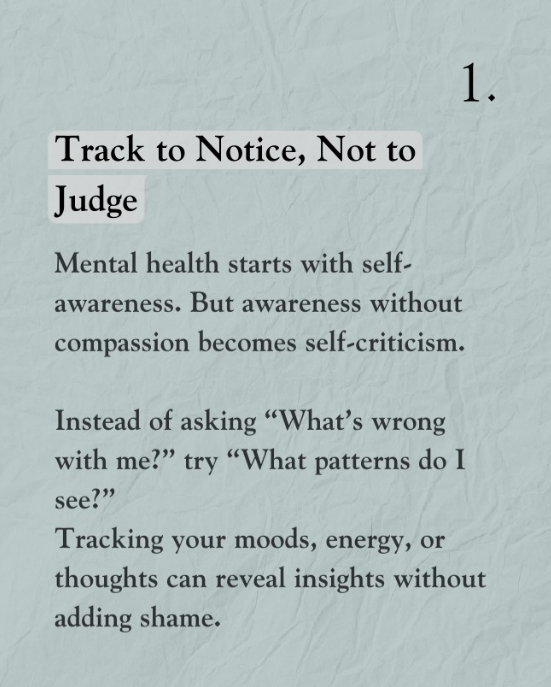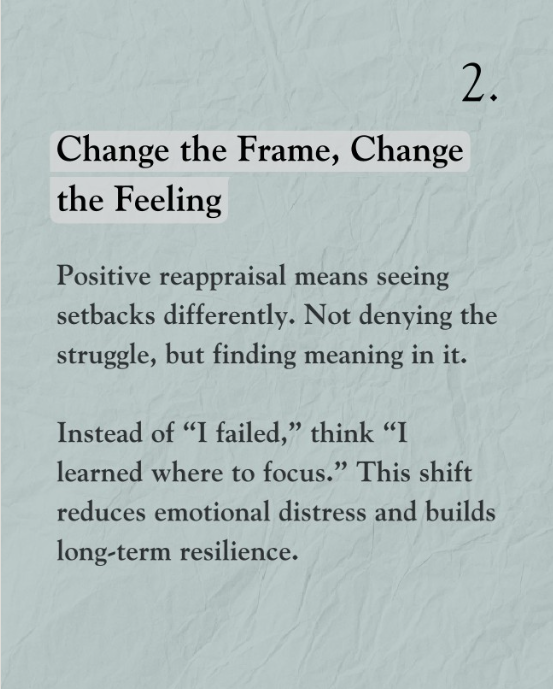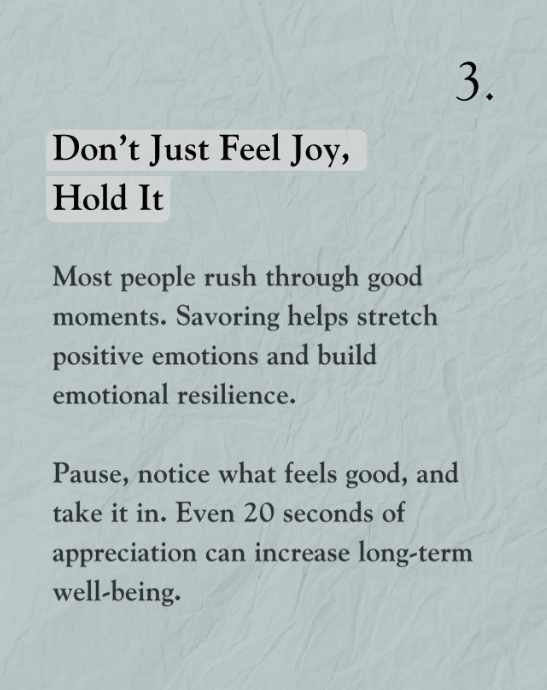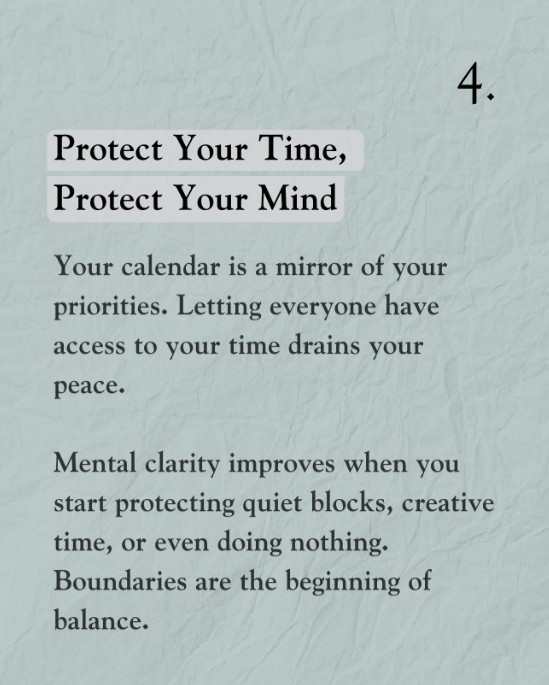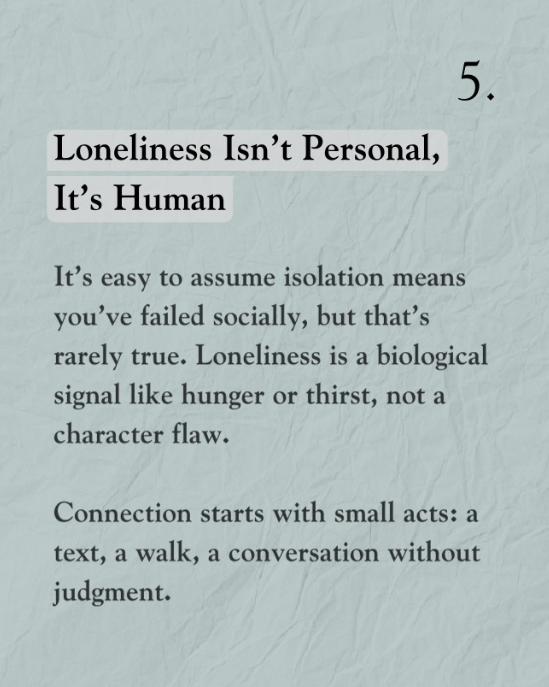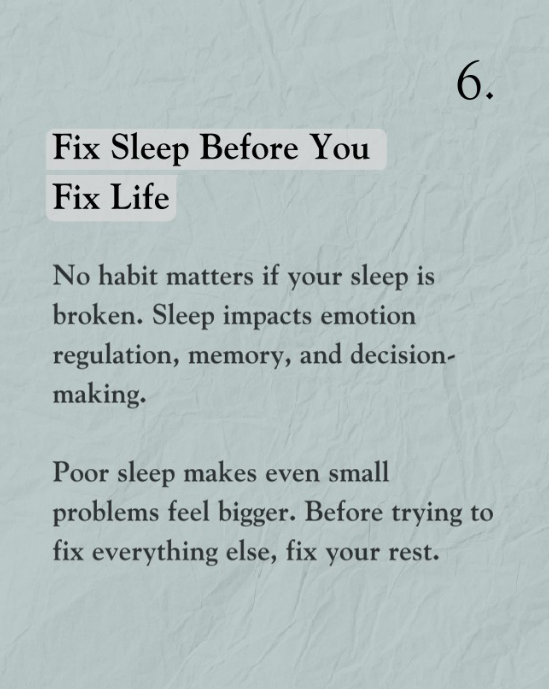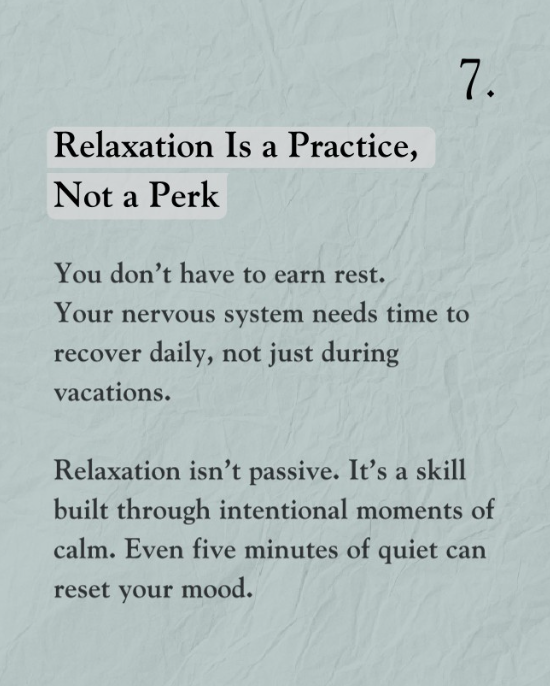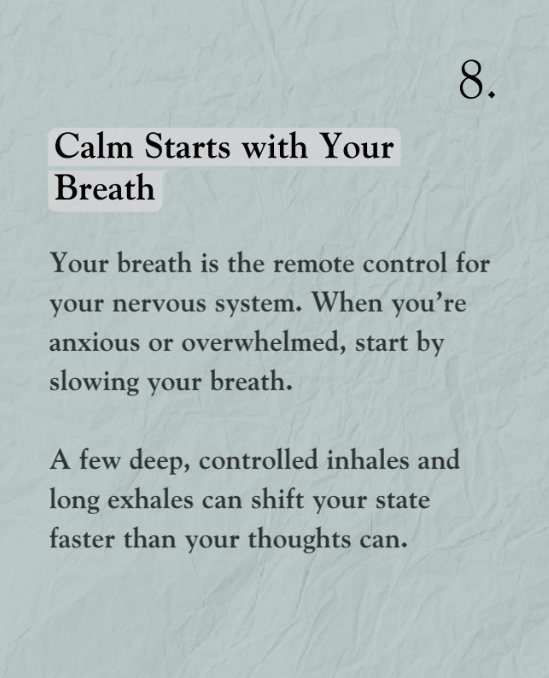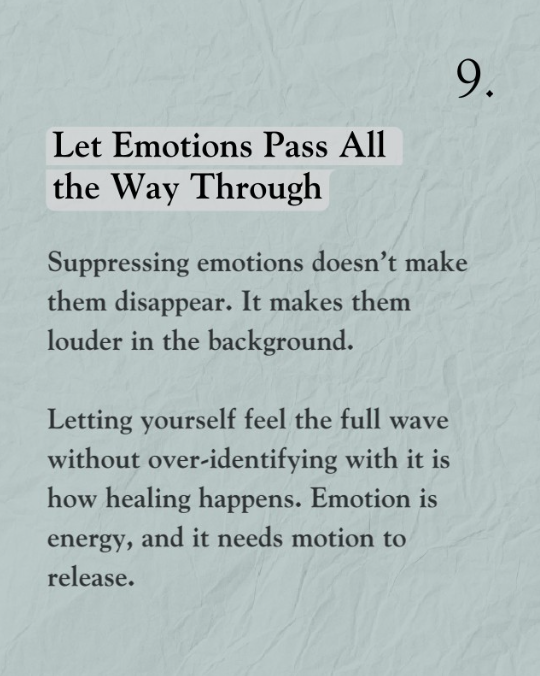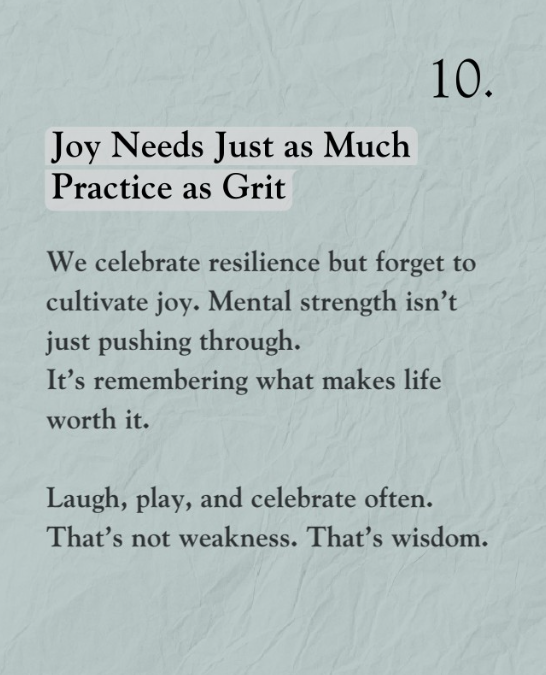The Contrarian Digest [Week 18]
The Contrarian Digest is my weekly pick of LinkedIn posts I couldn’t ignore. Smart ideas, bold perspectives, and conversations worth having.
No algorithms, no hype… Just real ideas worth your time.
Let’s dive in [18th Edition] 👇
1️⃣ Barbie Meets Big Tech – Luiza Jarovsky, PhD
⚡𝐈𝐧 𝐛𝐫𝐢𝐞𝐟: When AI enters the toy box, who’s actually being played? A sharp take on the real cost of tech’s next frontier.
🗞️𝐅𝐮𝐥𝐥 𝐩𝐨𝐬𝐭: https://lnkd.in/eR_WQ3Av
2️⃣ The Dopamine Trap of Digital Arguments – Joan Westenberg
⚡𝐈𝐧 𝐛𝐫𝐢𝐞𝐟: Online debates feel smart… until you realize it’s all just audience performance. What happens when you stop playing the game?
🗞️𝐅𝐮𝐥𝐥 𝐩𝐨𝐬𝐭: https://lnkd.in/eHwkvXNW
3️⃣ The Myth of YOU – Jamil Zaki
⚡𝐈𝐧 𝐛𝐫𝐢𝐞𝐟: What if the “real you” never existed? And that might be the most human thing of all.
🗞️𝐅𝐮𝐥𝐥 𝐩𝐨𝐬𝐭: https://lnkd.in/eaAEfVn3
4️⃣ The Art of Holding Contradictions – 💡Nuno Reis
⚡𝐈𝐧 𝐛𝐫𝐢𝐞𝐟: Creativity isn’t about balance; it’s about holding extremes. The world’s most inventive minds have one thing in common: paradox.
🗞️𝐅𝐮𝐥𝐥 𝐩𝐨𝐬𝐭: https://lnkd.in/eitYGNKV
💭𝐌𝐲 𝐭𝐚𝐤𝐞: I feel that my latest post (The Elon Musk Test) my latest post builds naturally on this one: https://lnkd.in/eaUXqD-R
5️⃣ The Discount That Became Equity – Nick Lebesis
⚡𝐈𝐧 𝐛𝐫𝐢𝐞𝐟: When your biggest customer threatens to walk, don’t race to the bottom. This founder made them investors. This is how creative leverage works.
🗞️𝐅𝐮𝐥𝐥 𝐩𝐨𝐬𝐭: https://lnkd.in/eJ2KiMGt
6️⃣ The Most Successful Lie in History – Shashank Sharma
⚡𝐈𝐧 𝐛𝐫𝐢𝐞𝐟: We say “fine” like it’s harmless. But what if it’s NOT? A raw take on emotional dishonesty and slow suffocation.
🗞️𝐅𝐮𝐥𝐥 𝐩𝐨𝐬𝐭: https://lnkd.in/exV9mFUB
7️⃣ When Expertise Becomes Your Prison – Anish Padinjaroote
⚡𝐈𝐧 𝐛𝐫𝐢𝐞𝐟: “Mastery” feels safe. Until it become a cage. Most smart people often stay stuck, mistaking competence for completion. But true mastery demands self-destruction.
🗞️𝐅𝐮𝐥𝐥 𝐩𝐨𝐬𝐭: https://lnkd.in/e7vEJPBn
💭𝐌𝐲 𝐭𝐚𝐤𝐞: Addiction & Professional Suicide – https://lnkd.in/eawF6Vhk
8️⃣ Emotional Maintenance Guide – Eric Arzubi, MD
⚡𝐈𝐧 𝐛𝐫𝐢𝐞𝐟: Mental health isn’t about “fixing what’s broken,” but “reclaiming what’s been lost.” Here are 10 powerful, evidence-backed ways to find your way back to yourself.
🗞️𝐅𝐮𝐥𝐥 𝐩𝐨𝐬𝐭: https://lnkd.in/ekH-ZSY9
——-
Which of these topics resonates with you the most?
Share your thoughts in the comments!
To your success,
Gaetan Portaels
Original publication date — June 16, 2025 (HERE)
READ THE FULL POSTS BELOW (and please, don’t forget to follow the authors)
1️⃣ Barbie Meets Big Tech – Luiza Jarovsky, PhD
🚨 BREAKING: OpenAI and Mattel announce a partnership to develop AI-powered toys.
What could go wrong? 😱
According to the official announcement:
“The agreement unites Mattel’s and OpenAI’s respective expertise to design, develop, and launch groundbreaking experiences for fans worldwide. By using OpenAI’s technology, Mattel will bring the magic of AI to age-appropriate play experiences with an emphasis on innovation, privacy, and safety.”
It goes back to the old saying: “just because you can doesn’t mean you should.”
– I’m sure OpenAI is capable of integrating generative AI into toys.
– I’m sure OpenAI and Mattel can develop a Barbie or any other toy with voice-enabled ChatGPT into it.
– I’m sure Mattel is eager to tell the world how “AI first” it is, and how “AI is disrupting the toymaking industry.”
However:
– Should toys be AI-powered? Do kids need it?
– Have they considered safety issues and long-term implications?
– Does AI add anything beneficial to a toy in terms of child development?
– Should kids be exposed to potential AI harm at an early age?
The answer to the questions above is probably no.
But if you read the latest edition of my newsletter (link below), you know that it doesn’t matter: as long as it’s profitable, companies will do it, regardless of the consequences.
And tech CEOs will frame it as “the age of abundance.”
2️⃣ The Dopamine Trap of Digital Arguments – Joan Westenberg

I stopped arguing on the internet. Here’s what I learned.
Before I deleted X, I could write the perfect reply. Deploy the devastating counterpoint. Drop the mic with a brilliant analogy (according to me, at least) that left opponents speechless.
I was also getting dumber by the day.
The truth about online debates:
A. The platforms are rigged against actual learning.
B. Algorithms reward conflict over clarity
C. Character limits kill nuance
D. We perform for audiences, not truth
E. Every “win” makes us more confident while understanding less
We’re not debating…we’re dopamine farming.
Think about it: When’s the last time you changed your mind because of a LinkedIn argument? When’s the last time you saw someone else genuinely shift their position after a comment thread?
Never. It just doesn’t happen.
We’re blue teaming the crap we agree with and red teaming everything else.
The internet was supposed to be a marketplace of ideas. Instead, we built a gladiatorial arena where nuance goes to die.
Every hour I spent “winning” online debates was an hour I could have spent actually learning.
Every “clever” comeback was mental energy I could have used to understand complex issues more deeply.
What I do instead:
– Read the actual books (not just the summaries everyone’s debating)
– Write to explore ideas (not to win points)
– Save real conversations for coffee (where context actually matters)
– Treat social media as junk entertainment (not education)
You will never win an argument online. Ever.
The game itself is rigged.
The only winning move: Don’t play.
3️⃣ The Myth of YOU – Jamil Zaki
Science destroys the notion of a single, “authentic” self. What can we do with that knowledge?
Especially in the West, people are deeply attached to their individual identity, the “real” you that remains steady across your life. But decades of research find that circumstances, especially social ones, change everything about you.
It’s now clear that depending on who you’re with, all of these things will change, sometimes dramatically:
Who you are (personality)
How you feel (emotions)
How your mind works (cognition)
What you retain (memory)
What happens inside your body (physiology and brain)
What you believe (opinion and ideology)
The science is clear, at many levels, *authenticity is a myth.*
Where does this leave us? It may seem scary and destabilizing, but I think it’s also beautiful, demonstrating that everyone changes us and we them. In every conversation and interaction, we are deciding, together, who to be.
Two questions can make this actionable:
(1) The people you choose to have in your life is a choice about which “you” to be. So, who makes you the best version of yourself?
(2) Your spouse and friends would be different “thems” if they had chosen differently. They chose to be the them they are with you. What will you do with that honor?
4️⃣ The Art of Holding Contradictions – Nuno Reis
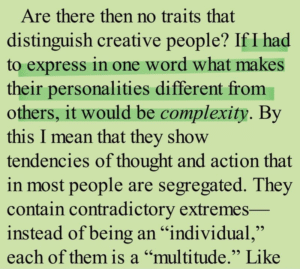
In 1996, Mihaly Csikszentmihalyi wrote a less-known, yet EYE-OPENING book: “Creativity”
Between 1990 and 1995, Csikszentmihalyi interviewed 91 exceptional creative people.
Nobel Laureate physicists to Business moguls.
Despite their differences, he found ONE common pattern to all:
Their ability to HOLD CONTRADICTIONS!
Examples?
1/ Smart + Naive
Wisdom meets childishness
2/Energetic + Quiet
Energy is under their control, not controlled by the clock
3/ Play + Discipline
Playfulness without perseverance doesn’t go far (and they know it)
4/ Fantasy + Realism
Their imagination leaps into different worlds, but not lost in abstraction
5/ Introverted + Extroverted
Creative people do NOT fit in any of the 16 Myers-Briggs personality types
(There are five more contradictions left out here, but you get the idea…)
IMPORTANT NOTE:
This doesn’t mean EVERY creative person holds ALL these contradictions.
What matters is that they have this kind of ‘Paradox Mindset’.
The capacity to hold contradictions without ‘averaging’ them.
It’s NOT some midpoint between two extremes.
It’s not about being ‘wishy-washy’.
Creativity is the ability to move from one extreme to the other as the occasion requires.
—
One final insight from Csikszentmihalyi:
Creativity isn’t just an individual thing.
It’s also about the environment.
This is GREAT NEWS!
It means this skill isn’t reserved for the ‘naturally born creative’—
it’s something we can ALL cultivate.
↳Step one is simple:
Be aware of your own contradictions.
↳Step two is a bit harder:
Surround yourself with people who embrace contradictions.
(…and trust me, that’s the hardest part!)
That’s why we started our Rare Dots Friday Club.
Every week, a small circle of founders, creatives, and leaders meet to hold contradictions and see what EMERGES.
The last one we found?
The contradiction between what’s important + NOT useful
(…within the utilitarian economic paradigm)
5️⃣ The Discount That Became Equity – Nick Lebesis
A founder friend called me mid-panic attack.
Runway: 3 months.
Revenue: $20K/month from one strategic customer.
Then came the email that kills startups:
“Another vendor came in cheaper. Can you match?”
I video-called him at 11pm.
Office lights off.
Laptop glowing.
“They want another 30% off,” he said.
Dragged him down from $28K to $20K.
Now they wanted $14K.
“We’re dead either way.
Take the cut, we’re done. Lose them, we’re gone in 8 weeks.”
That’s when I jumped in:
“Stop discounting. Give them equity.”
He blinked.
“You want me to give away my company?”
“No. I want you to give them a reason to care if you win.”
Next morning, he offered them 2% equity (vesting over 4 years, tied to revenue milestones).
“You’re not just a customer anymore. You’re helping us define this market.”
They said yes in 24 hours.
Then the shift:
Before: “We’re evaluating other vendors.”
After: “How do we help you win this category?”
Month 1: No more pricing games
Month 2: Tactical product feedback
Month 3: Warm intros to Fortune 500s
Month 6: They led his $2M round
He repeated the pattern, MUCH smaller equity each time.
Today:
• 47 customer-shareholders
• 0% churn
• A product roadmap shaped by real operators
That original 2%? Now worth over $1M.
The discount they wanted? Would’ve saved them ~$72K?
They asked for a discount.
He made them investors.
Now they can’t afford to leave.
6️⃣ The Most Successful Lie in History – Shashank Sharma
There was a time when people said what they meant.
“I’m angry.”
“I’m scared.”
“I feel alone even when I’m with people.”
But somewhere between growing up and growing quiet, we invented something else.
A word that could hide everything, hold everything, fake everything.
We invented “Fine.”
How are you?
Fine.
How’s work?
Fine.
How’s the marriage, the health, the sleep, the dream that died last year?
Fine.
“Fine” is the most successful lie in human history.
It’s short. Polite. Believable.
It doesn’t make anyone uncomfortable.
It doesn’t demand space.
It doesn’t need follow-up.
And we’ve become artists at using it.
We say “fine” when we mean “I haven’t felt okay in months.”
We say “fine” when we’re falling apart on the inside but still replying to emails.
We say “fine” because anything more would take too long to explain.
And we’ve learned that most people aren’t really listening.
In India, “fine” is cultural currency.
You’re expected to be okay.
To smile through the pressure cooker.
To adjust. To sacrifice.
To be grateful for the roof, the job, the family even if none of them see you.
You tell your friend you’re fine.
Because if you tell her the truth, she’ll worry.
You tell your partner you’re fine.
Because if you admit you’re unhappy, you’ll have to face what comes next.
You tell yourself you’re fine.
Because saying otherwise feels like failure.
But the cost of “fine” is heavy.
It leaks into your body.
Your appetite. Your posture. Your sleep.
It makes your smile stiff and your laughter shallow.
It numbs you gently.
And then, completely.
What began as a shortcut becomes a trap.
You say it so often, you forget what you actually feel.
You become a polite ghost in your own life.
Present. Pleasant. But never real.
And here’s the real tragedy –
People believe you.
They believe the smile. The okay. The fine.
Because they want to.
Because most of us are busy managing our own versions of “fine.”
So we nod.
We say, “Take care.”
And we move on.
But sometimes, someone asks again.
“Are you sure?”
And in that crack, something breaks.
A tear escapes.
A sentence spills.
A truth trembles out –
“I’m not fine.”
And suddenly, you’re human again.
That’s the beginning.
The unraveling of years of holding it together.
The slow return to feeling.
Because life isn’t meant to be fine.
It’s meant to be felt.
Joy that makes you tear up on a Wednesday.
Grief that leaves you wordless.
Love that scares you.
Fear that humbles you.
Longing that doesn’t go away with distractions.
So next time someone asks –
Be brave.
Be unpolished.
Be messy.
Say, “I’m tired.”
Say, “I’m trying.”
Say, “I don’t know.”
Because the opposite of fine isn’t bad.
It’s honest.
And honesty is where healing begins.
7️⃣ When Expertise Becomes Your Prison – Anish Padinjaroote
𝗧𝗵𝗲 𝗘𝘅𝗽𝗲𝗿𝘁𝗶𝘀𝗲 𝗧𝗿𝗮𝗽: Why Your Knowledge is Your Prison
I’ve walked into that trap too, few times in my life…..
The transformation from expert to beginner isn’t just professional evolution, it’s personal metamorphosis.
It’s like Harvey Dent’s haunting realization in the Batman movie: “You either die a hero or live long enough to see yourself become the villain.” In our case, we either question / kill everything we once held sacred or plateau forever as yesterday’s experts.
I’ve experienced that moment when my expertise became my cage, when the very knowledge that elevated me started limiting my vision.
The journey from mastery to metamorphosis demands three core skills I’ve learned through experience and observation:
𝗦𝗲𝗹𝗳-𝗮𝘄𝗮𝗿𝗲𝗻𝗲𝘀𝘀 is the foundation. You must recognize when your expertise has become your blindness. True awareness emerges only when you develop the meta-cognitive ability to examine your own thinking patterns. It’s the difference between knowing your biases exist and actually catching yourself in the act of being biased.
𝗣𝗿𝗶𝗼𝗿𝗶𝘁𝗶𝘇𝗮𝘁𝗶𝗼𝗻 is the discipline. Not all knowledge deserves equal weight. The courage to abandon beliefs that no longer serve, even when they once defined your professional identity; requires ruthless prioritization of what matters now versus what mattered then. It’s strategic forgetting in action.
𝗢𝗽𝗲𝗻𝗻𝗲𝘀𝘀 𝘁𝗼 𝗰𝗼𝗻𝘁𝗿𝗮𝗱𝗶𝗰𝘁𝗼𝗿𝘆 𝘁𝗲𝗻𝘀𝗶𝗼𝗻𝘀 is the most crucial. The ability to hold two opposing ideas simultaneously without cognitive collapse. To believe in your methodology while remaining open to its obsolescence. It’s the intellectual flexibility that prevents expertise from calcifying into dogma.
Did you know, inside the chrysalis, the caterpillar literally dissolves into cellular soup before reorganizing into something entirely different. This isn’t evolution, it’s complete dissolution followed by reconstruction.
The remarkable part: specialized cell clusters called “imaginal discs” survive the liquefaction. Dormant in the caterpillar all along, these discs contain the butterfly blueprint. When everything familiar dissolves, these hidden structures guide the reformation.
𝗧𝗵𝗲 𝗽𝗿𝗼𝗳𝗼𝘂𝗻𝗱 𝘁𝗿𝘂𝘁𝗵: Complete transformation requires intentional dissolution.
We approach change as additive; gaining skills, expanding capabilities, growing incrementally. But metamorphosis suggests something more radical: our most complete transformations demand that familiar structures break down entirely before new forms can emerge.
The butterfly doesn’t happen despite the dissolution. It happens because of it.
In an AI-accelerated world where instant expertise is commoditized, our edge isn’t what we know, it’s our willingness to unknow. To step off that cliff, again and again, trusting that metamorphosis requires the death of who we used to be.
The beginner’s mind isn’t a destination. It’s a practice.
——–
Gaetan Portaels’ take:
Powerful framework, Anish Padinjaroote.
I genuinely believe most “experts” won’t be able to escape this trap.
Primarily, because they’re ADDICTED to “being right” more than “being relevant.” Relevance feels threatening when your whole identity is built on certainty.
Secondarily, because “dissolution” often feels like “professional suicide.” In some ways, you could say your IDENTITY screams as you slaughter your sacred cows.
We’ve all watched truly brilliant minds (and people we admired) become “museums of their former glory.” Not because they weren’t capable, but because they couldn’t stomach the EGO DEATH metamorphosis demands.
In the end, I think the real question is: can you “murder” your expertise whileit’s STILL making you money?
As Bezos puts it better than I could, “It’s rarely about riding the CURRENT wave. It’s about being early to the next one” – maybe paraphrasing a little 😄
8️⃣ Emotional Maintenance Guide – Eric Arzubi
Some struggles are loud.
But most go unnoticed.
You smile through the meetings.
You answer the messages.
You check the boxes.
And still feel off.
Mental health isn’t just about what’s broken.
It’s about what’s missing.
Moments of rest.
Moments of stillness.
Moments where you feel like you again.
This isn’t a fix-it list.
It’s a gentle return.
To rhythm.
To breath.
To clarity.
Because taking care of your mind isn’t selfish.
It’s how everything else begins to make sense again.

